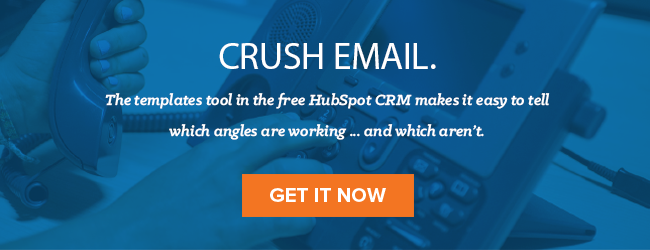

I was talking to a training client who lamented that his reps keep talking after the prospect is already sold.
He related it to the scene in Jerry Maguire where Tom Cruise launches into the emotional make-up speech ("You complete me") to his estranged wife, played by Renee Zellweger.
Eventually, she cuts him off mid-sentence: "Shut up. Just shut up. You had me at hello." (Watch the clip here in case you haven't seen it.)
Salespeople do this all the time. They keep selling even after the prospect is sold!
Keep this fundamental rule in mind: People buy for their reasons, not yours.
If they have already bought -- regardless of whether that has been explicitly vocalized -- stop selling and move to the next step. That could be getting the actual commitment, or discussing the details of the sale.
If the buyer has flat out said that they'd like to buy, slam on your presentation brakes and shift into the details of getting the thing closed, delivered, implemented, etc. A rookie mistake (I've done it) is getting so excited about the done deal that we continue gushing about how great the product or service is ... and talk ourselves right out of the business.
Shut up. You had them at "hello."
On the other hand, if the prospect hasn't yet volunteered the commitment but is emoting strong agreement signals, screech the presentation to a halt and move to the commitment stage.
Here's what this sounds like in conversation:
Buyer: "This product will really help us cut down on processing time."
Salesperson: "Yes it will. Let's go ahead and get you started."
The exception here would be if you'd like them to sell themselves a bit more. Notice that I wrote "selling themselves." Not you pitching.
In this case, ask questions to get them to discuss the benefits further:
Buyer: "This product will really help us cut down on processing time."
Salesperson: "Yes it will. How much time do you think you'll save?"
The Danger of Pitching When the Buyer Is Already Sold
Aside from wasting your most precious commodity -- time -- continuing to sell when the prospect is already sold carries a much greater consequence: They might decide to hold off, or worse, change their mind.
Again, people buy for their reasons. When you bring up new information, it could conflict with those reasons. You might surface something that creates doubt.
I was once listening in on a sales call where the rep had the prospect ready to recite his credit card number.
That is, until the rep said, "And we include a pre-printed UPS return shipping label if you need to send it back."
An awkward silence ensued.
After a few seconds, the buyer asked, "Uh ... so lots of people send this back?"
The sales rep -- backpedaling as fast as he possibly could -- replied, "Uh, err, well, haha, not really ... um, well, sometimes ... I mean not a lot, you know, the regular amount. We just want to make it easy for our customers, just in case they want to, um ... send it back."
Prospect: "Okay ... I'll give it some thought and get back to you."
D'oh!
The lesson is simple: Quit selling when the prospect is already sold. After you've wrapped up the details, congratulate them on a great decision to negate buyer's remorse, and then move on to the next opportunity.
When you have them at "hello," don't buy it back. Chalk up the win, and move forward.
Editor's note: This post originally appeared on Smart Calling Online and is republished here with permission.










